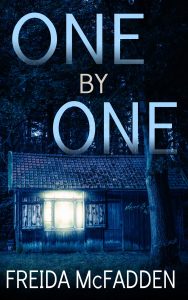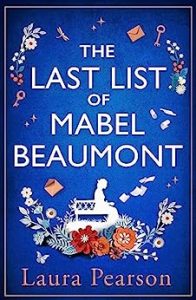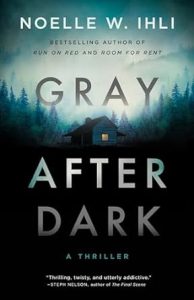
If you come to Casey McQuiston for feel good queer romance, found family, and a fizzy touch of magic, One Last Stop delivers plenty to love. It is swoony, big hearted, and full of late night diner warmth. Yet for many readers, the novel’s New York City setting, train logic, and pacing feel shaky. The result is a book that sings when it focuses on love and community, but hits some sour notes whenever it tries to map itself convincingly onto a real place.
The Setup
August is twenty three, a skeptical loner who moves to Brooklyn determined to avoid cinematic love stories. Her resolve crumbles when she keeps running into Jane, a leather jacketed punk with molten charisma, on the Q train. Sparks fly, then the reveal lands, Jane is inexplicably stuck in time, displaced from the 1970s and tethered to the subway. To free her, August must reopen doors she keeps bolted, including a family mystery and the possibility that love is not only real but worth the risk.
What Works
A romance that actually glows
The chemistry between August and Jane is charged and playful, built on stolen glances through smudged windows, dumpling runs, and research kisses that are obviously not just research. Their opposites attract dynamic is classic, anxious planner meets kinetic fighter, and McQuiston sustains that electricity with crisp banter and affectionate humor.
The comfort of found family
One Last Stop is at its best when it leans into community. August’s roommates and friends, a vivid queer ensemble of drag performers, artists, and oddballs, fold her into a home she never expected to have. The book understands the way chosen family can pull you out of your shell, feed you at 2 a.m., and hand you the courage you did not know you had. Readers who loved the communal heart of Red, White and Royal Blue will find similar warmth here.
Themes with emotional clarity
McQuiston captures the twentysomething ache, that suspended feeling of drifting without roots while the future yawns open. The novel keeps returning to one resonant truth, you have to make your own place to belong. When the story stays close to that emotional compass, it lands with real tenderness.
Where Readers Stumble
A shaky map of New York City
For some New Yorkers, the book’s love letter to the Q line reads like it never learned the alphabet. Reviews from locals have flagged basic errors, station descriptions that do not match reality, improbable commutes, even a misnaming of the transit authority. If you ride the actual Q or have deep roots in Flatbush, the disconnect can be distracting. The city becomes a soft focus backdrop rather than the textured ecosystem it is, which dulls the gentrification subplot and the novel’s gestures toward place based history.
Pacing and convenience
Several readers found the middle act baggy and repetitive, with long stretches of slice of life filler followed by a rushed cascade of plot. Coincidences stack up neatly for August, from school responsibilities that conveniently disappear to family ties that dovetail a little too perfectly with Jane’s mystery. If you crave tight plotting, you may feel the slack.
Agency and perspective
Because the story is filtered through August, Jane sometimes reads less like a co equal protagonist and more like a puzzle for the main character to solve. The imbalance is heightened by the premise, Jane’s memory depends on August’s efforts. Some readers also bristled at the optics of a white Southern transplant positioned as the key to unlocking a dark skinned Asian butch heroine’s past. Others were unbothered, embracing the relationship as a heartfelt riff on the guardian angel trope. Your mileage may vary.
Style and Sensibility
McQuiston writes with clean, contemporary prose, quick on the quip and generous with sensory detail. The romantic beats are unabashedly cinematic, kiss with the tunnel lights strobing, breakfast at dawn after a night of emotional spelunking, friends barreling in with chaotic good energy. If you are here for softness, humor, and hot but tender scenes, you will eat well.
Who Will Love It
- Readers seeking a hopeful queer romance with a cozy found family vibe
- Fans of speculative tinged love stories that keep the magic light and character driven
- Anyone who wants a subway crush fantasy spun into a full fledged relationship arc
Who Might Bounce Off It
- New Yorkers and train nerds who need the geography to make sense
- Readers sensitive to pacing drag or heavy coincidence
- Those looking for a textured, rigorously researched portrait of Flatbush and the Q line
Verdict
One Last Stop is a warm cup of diner coffee on a cold platform, sweetened with found family and a time crossed crush. As a map of Brooklyn and its trains, it wobbles. As a love story about learning to belong to a city, to a group of friends, and to one incandescent person, it charms. If you can forgive the fuzzy cartography and a few contrived turns, there is plenty of joy here, the kind you carry off the train and back into your day.
Quick Takeaways
- Strengths, palpable chemistry, affirming queer community, emotionally honest themes
- Weaknesses, thin sense of place for NYC locals, uneven pacing, occasional agency imbalance
- Content notes, brief mentions of hate violence in backstory, grief, gentrification pressures, sexual content on the steamy but not explicit end of mainstream romance
Rating
4 out of 5 for readers who come for soft queer romance and found family, closer to 3 out of 5 if accuracy of New York details is non negotiable.
Buy the Book
Ready to see if August and Jane’s time crossed connection wins you over, pick up One Last Stop on Amazon: https://amzn.to/4gRLAOo


